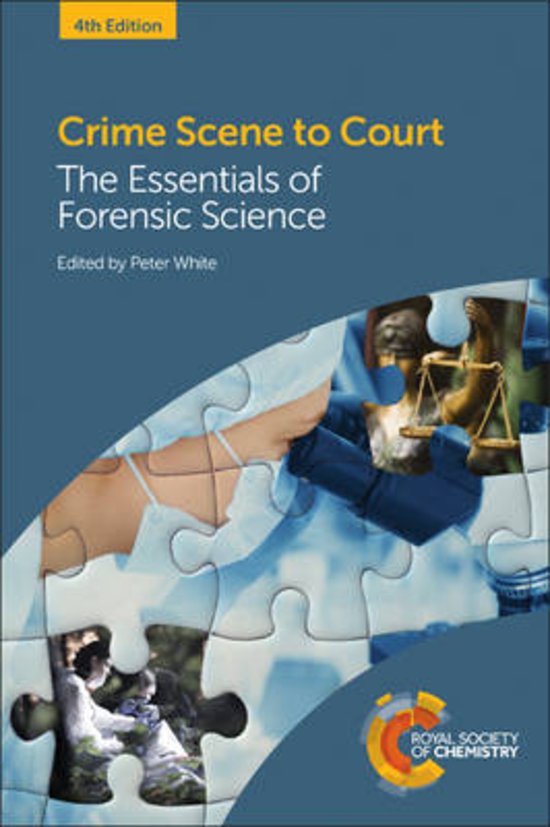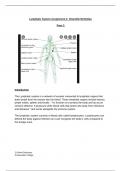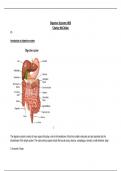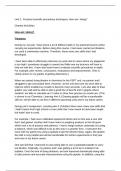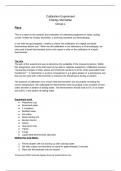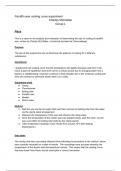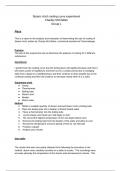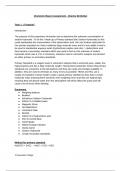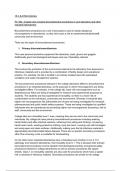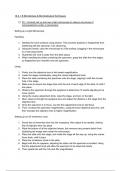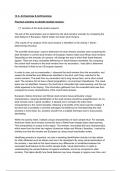Pearson BTEC • Forensic and Criminal Investigation
Latest uploads for Forensic and Criminal Investigation at Pearson BTEC. Looking for Forensic and Criminal Investigation notes at Pearson BTEC? We have lots of notes, study guides and revision notes available for Forensic and Criminal Investigation at Pearson BTEC.
-
260
- 0
-
49
Modules Forensic and Criminal Investigation at Pearson BTEC
Notes available for the following courses of Forensic and Criminal Investigation at Pearson BTEC
- Unit 1 - Principles and Applications of Science
- Unit 2 - Practical Scientific Procedures and Techniques
- Unit 3 - Science Investigation Skills
- Unit 4 - Forensic Investigation Procedures in Practice
- Unit 5 - Applications of Criminology
- Unit 6 - Criminal Investigation Procedures in Practice
- Unit 7 - Applications of Criminal and Forensic Psychology
- Unit 8 - Physiology of Human Body Systems
- Unit 9 - Environmental Forensics
- Unit 10 - Forensic Fire Investigation
- Unit 11 - Forensic Traffic Collision Investigation
- Unit 12 - Forensic Photography
- Unit 13 - Forensic Genetics
- Unit 14 - Forensic Anthropology and Archaeology
- Unit 15 - Practical Chemical Analysis
- Unit 16 - Microbiology and Microbiological Techniques
Popular books Pearson BTEC • Forensic and Criminal Investigation
Latest notes & summaries Pearson BTEC • Forensic and Criminal Investigation
The Lymphatic system is a network of vessels connected to lymphatic organs that drain lymph from the tissues into the blood. These lymphatic organs include thymus, lymph nodes, spleen and tonsils. It’s function is to protect the body and act as an immune defence. It produces white blood cells that protect the body from infections and diseases and works alongside the immune system. The lymphatic system consists of blood cells called lymphocytes. Lymphocytes can defend the body against inf...
The digestive system consists of many organs that play a role in the breakdown of food into smaller molecules and are absorbed into the bloodstream of the lymph system. The main primary organs include the buccal cavity, pharynx, oesophagus, stomach, small intestines, large intestines, colon and rectum. These are the order in which food passes through. In addition, there are also some accessory organs - the pancreas,liver and gallbladder in which food does not pass through but these organs secret...
This assignment is about the overall reflection of the experiments in PSPT.
Essay Unit 2 - Practical Scientific Procedures and Techniques
Undertake calorimetry to understand cooling curves
Undertake calorimetry to understand cooling curves
The purpose of this experiment of titration was to determine the unknown concentration of sodium hydroxide. To do this I made up a Primary standard (the Sodium Hydroxide) so this could standardise the concentration of the Hydrochloric Acid. We use Sodium Hydroxide for Our primary standard as it had a relatively large molecule mass and it's very stable it tend to be used to standardise aqueous acids (hydrochloric,sulphur and nitric. ) Hydrochloric acid then became a secondary standard which was ...
Laboratory notebooks recording the practical work done plus observations of practical work by suitably qualified staff. Any parts not covered in practical work can be addressed by research reports. This assignment covers TWO briefs into ONE assignment. ALL criteria of both briefs is covered. This assignment can be used in APPLIED SCIENCE This assignment was graded a distinction and guarantees a good grade
A research report using any appropriate format that covers four of the listed microorganisms. Practical work setting up and using light microscopes and oil immersion lenses to look at the structure of microorganisms. Scientific drawings of specimens, laboratory notebooks and practical write-ups supported by teacher observations. A presentation of their work which also outlines the uses and limitations of the instruments used when compared with other types of microscopy, including specimen prep...
An investigative report of an examination of skeletal and skull remains; evaluating results and explaining and evaluating identification techniques used in forensic investigation. Identification of various skeletal and skull anatomy. Supported with practical sheets and observation documentation by assessor. This assignment was graded a distinction piece so guarantees a good grade

